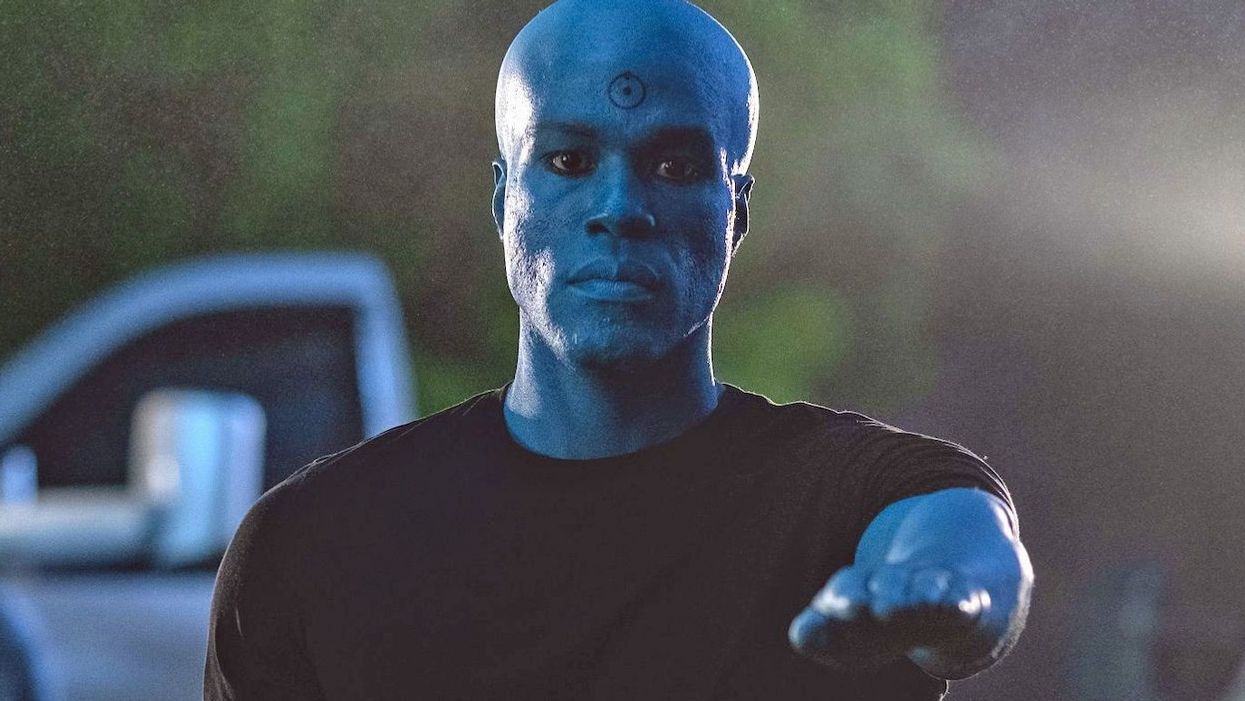Breaking Down the Philosophy of 'Watchmen'
Watchmen came to television and completely blew our minds. Unlike other superhero iterations, it was deep and had something to say. Let's look at the philosophy behind the story.

Watchmen, one of the most talked-about TV shows in the past decade, was just on in the last year, and now is the perfect time to dig deep into it.
Damon Lindelof is used to writing controversial television with a lot to say. Fresh off the criminally underappreciated series, The Leftovers, and always associated with Lost, Lindelof has never shied away from dealing with depth.
And Watchmen is about as deep as they come.
Today I want to go over the philosophy inside the show and detail some of the deep and interesting themes within its complex story.
Check out this video from Wisecrack and let's talk after the jump!
Breaking Down the Philosophy of Watchmen
As you can imagine, one of the central themes of the Watchmen show is that of time, or, how we relate to time. Do we learn from the past, and does what we know about the past affect us?
This is represented through history.
Yes, that class you took from grade school through high school.
You see, Watchmen opens with real history. The assault on Black Wall Street in Tulsa. This massacre is not something many of us learned while we were growing up. The reason is one of the biggest cores of Watchmen...historiography, which means the study of what we actually write down and view as history.
Since many text books were written by white people, a lot of American history neglects the trauma inflicted on people of color.
But this history doesn't disappear just because it is rarely written down.
It bubbles under the surface.
Generational Trauma
One of the tenets of Watchmen is the study of generational trauma. How has the effect of history affected who we are today?
Namely, how are the characters in the show dealing with the modern world while also reflecting on the past?
For Angela, she's a superhero working in a police state. One that made vigilantism illegal. One that locks guns, and one that's dealing with a race war.
That makes things difficult for her, seeing as she's an African American on the force in Tulsa. She has to deal with a society mad at her for receiving reparations, the payment she deserves for past traumas, while also reconciling that the people she has come to rely on are not as trustworthy as she thought.
Namely, her captain hides his KKK affiliation in a secret room.
And that the Seventh Kavalry, a white supremacy group, is out to get them.
At the center of this generational trauma is her grandfather, the first vigilante who had to pretend to be white to make a difference. And history only remembers him that way.
Each of them has to find a way to use violence for good. This harkens back to the things Adrian Veidt preached, though not in the extremist tenor.
God Complexes
Another core of the show is ruling and judging like God. Whether you have an actual god, like Dr. Manhattan making determinations on how the world should work, or people like Veidt, who mainly escaped judgment.
Even Angela is there to judge the clues as they come to her, and she works to unravel the central plot.
There's also a darker side of judgment.
Vedit is literally creating life on Europa and then devaluing that life to send a message to earth, through his mass killings.
Senator Keene works secretly for the Seventh Kavalry. He's judging black America and finds them wanting. He wants to regulate them back to the background, and in a sinister twist, he knows the only possible way to do this is to eliminate God and change history.
His plan is bolstered by a race war bubbling under the surface.
This war is supported by the written history he respects, Rorschach's journal, which he's twisted to mean something else.
The Chicken or the Egg?
What I love about this show is that it takes all of these complex and emotional ideals and puts it into a form that's both entertaining and engaging. What bigger ideas are you trying to talk about in your screenplay?
What layers can you add as you delve into writing?
Think about that as you create your own worlds on the page.
Or as the good doctor says...
“There is no future. There is no past. Do you see? Time is simultaneous, an intricately structured jewel that humans insist on viewing one edge at a time, when the whole design is visible in every facet.”
What's next? HBO's 'Watchmen' Delivers a Killing Blow to the Superhero Genre
Watchmen was a groundbreaking comic series that took on lighter superhero fare and made us think about the deep human flaws that would reside within the characters at its center.
Now, several decades later, the Watchmen television series is here to finish what the comic started.
Source: Wisecrack













